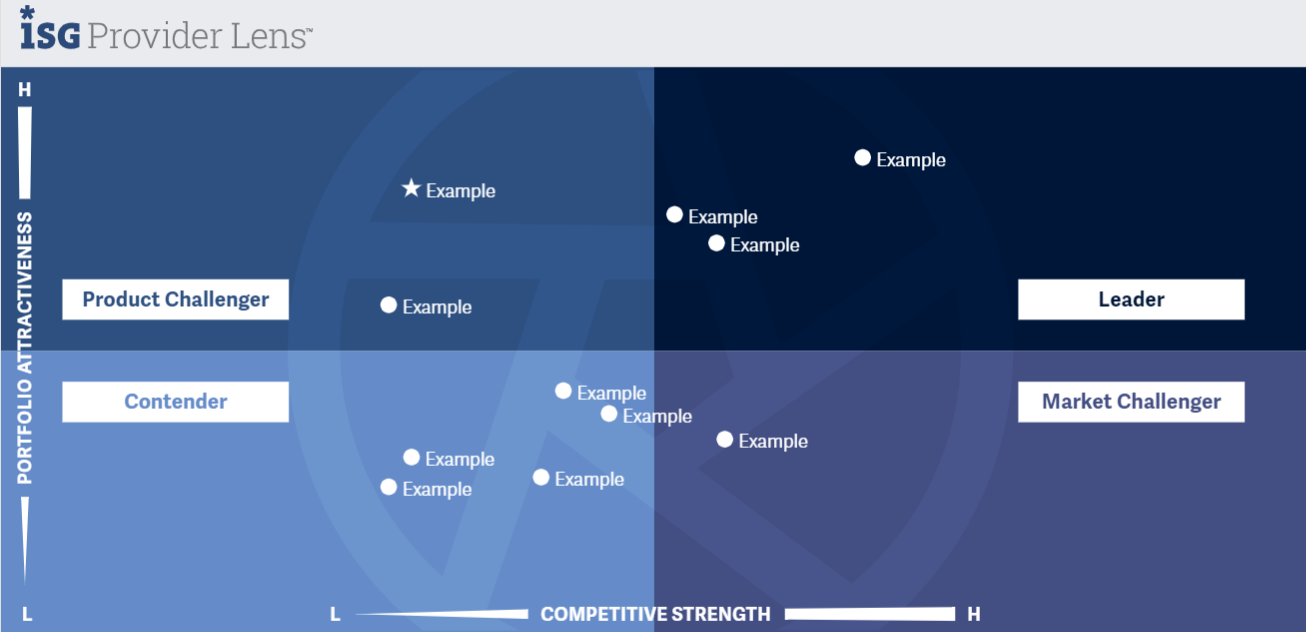Cybersecurity Threats in the Public Sector Can Be Daunting; Preparing for Them Doesn’t Have to Be
Throwing a barrage of cybersecurity tools and services at your network, devices and applications is neither cost effective nor sustainable.
Drive critical public services and improve stakeholder experiences by optimizing your administrative and IT environments.



ISG helps public sector clients transform operations through research, benchmarking, and consulting. We can help you:
Is a limited budget preventing you from improving critical services? You need to eliminate process inefficiencies and reduce costs in a sustainable way.
Through our process assessments and operations reviews, we help you identify, design and implement suitable candidates for automation and work with you to discover the best way to train and repurpose talent and increase efficiencies. You can reinvest the saved dollars in other projects and bolster service delivery to your citizens.

You need state-of-the-art enterprise resource planning (ERP) and other critical software systems to enable your workforce and serve your constituents. How do you acquire best-in-class software?
As a business partner with expertise in the full cycle of ERP and software advisory, we can support your efforts, from sourcing to implementation to post-deployment and value realization. You need to successfully match your business needs with a software package’s capability so you can improve business operations and reduce risks. ISG brings procurement experience, sourcing expertise, best-in-class methodology and insightful market data to help you assess, source, implement and manage your ERP software.
ISG is a leader in proprietary research, advisory consulting and executive event services focused on market trends and disruptive technologies. In 2023, ISG published 7 research reports specific to the public sector and in 2024 will publish many more.
Get the insight and guidance you need to accelerate growth and create more value.

As part of your digital transformation, you may want to deploy a cloud-based enterprise resource planning (ERP) application. ERP software can help you deliver best practices for business workflows, security, performance and data analytics faster and at a better price. You will also be able to improve integration across your business units, including finance, supply chain, human resources and sales.
ISG helps organizations evaluate software options based on platform capabilities and what will best meet your unique needs. Let us review your drivers, optimize your processes and help you design a future roadmap that leverages the platform or combination of platforms that will enable growth.
ISG is a leader in proprietary research, advisory consulting and executive event services focused on market trends and disruptive technologies.
Get the insight and guidance you need to accelerate growth and create more value.
Learn MoreIn 2025, the U.S. public sector — especially state, local and education (SLED) organizations is undergoing a profound transformation in how digital workplace services are conceived, procured and implemented.
The dynamics of cybersecurity in the U.S. public sector are marked by an escalating threat environment, requiring a shift beyond operational continuity to comprehensive mission resilience. Government agencies at the federal, state and local levels face a complex array of sophisticated cyberthreats while pursuing critical digital transformation initiatives, including AI integration.
The U.S. state, local and education (SLED) IT infrastructure services market is projected to grow approximately to $150 billion by the end of 2025, with expectations to reach over $170 billion by 2028, with a moderately flat growth rate when compared to last year, mainly due to budget constraints and the changes brought in by the new government. High-impact services in modernization, cybersecurity and hybrid cloud technologies will drive spending as agencies will need to replace their legacy IT infrastructure. Hybrid cloud infrastructure managed services are gaining traction, as 90 percent of SLED agencies are expected to adopt hybrid cloud models, highlighting their importance in the U.S. public sector organizations.
The U.S. public sector, particularly state, local and educational (SLED) agencies, is finally witnessing the anticipated surge in cloud services adoption. This shift is transforming SLED IT organizations, spending and department operations, intensifying competition among cloud service providers and increasing the demand for FinOps capabilities.
As the commercial and consumer use of cloudbased IT infrastructure continues to grow, its use among state, local and education (SLED) and other public-service client organizations also increases. This, in turn, is driving rapidly growing interest in, and purchases of, private/hybrid/data center managed hosting and managed services by SLED organizations.